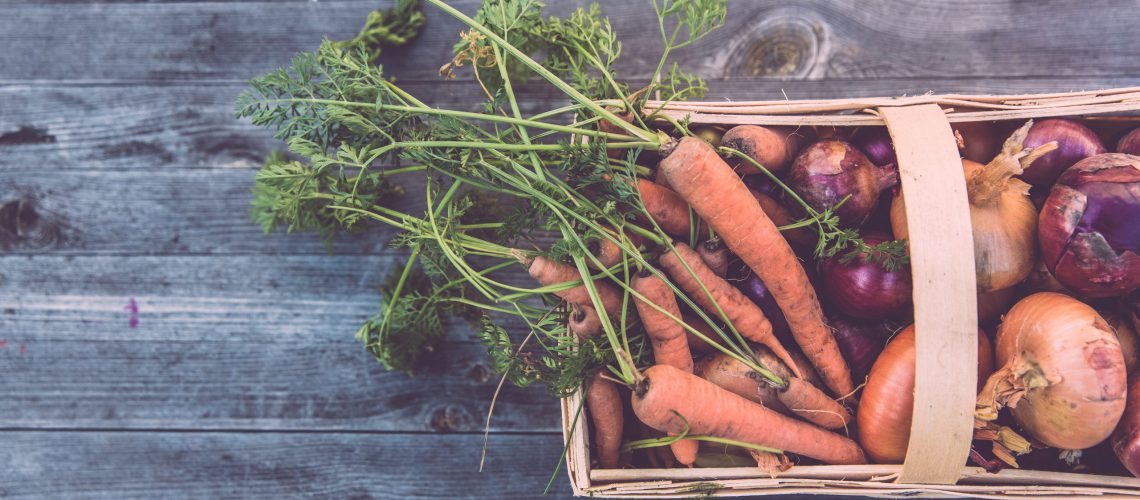Unfortunately, we live in a time when even healthy foods have far less nutritional value than they used to. For example, 70 years ago an orange would contain 50mg of Vitamin C; today, however, that same orange would only contain 5mg. That lovely “healthy” salad you’re planning to eat for dinner has practically no nutritional value. In fact, you would probably have to eat about 65 cups of it to get the benefits you would have gotten from one salad in 1945. Why is our food so nutritionally empty? In this post, Dayanna Volitich explains 3 reasons why food has become less nutritious over the years.
Why Is Our Food Less Nutritious?
Dayanna Volitich says that foods are far less nutritious in our times because of topsoil depletion. As the basis of all life, soil feeds the plants that grow. Those plants feed animals, who then feed us. So when there is a problem with the soil at the bottom of the food chain, the nutritional value and health of everything above soil on the chain, decreases. Let’s look at three main factors that contribute to this problem.
1. Deforestation
While deforestation is not directly responsible, it plays a significant role in the destruction of ecosystems and topsoil erosion. According to the U.S. Global Change Research Information Office, soil has been eroded at 17 times the rate at which it forms: about 90% of U.S. cropland is losing soil above a sustainable rate. Moreover, dozens of studies analyzing the effect of erosion on land productivity found that the loss of only one inch of topsoil reduces corn and wheat yields an average of 6%.
The causes of this topsoil loss, Dayanna Volitich says, could include plowing too deeply, grazing too many animals, failing to rotate crops, and not planting vegetation to protect the soil from wind and water erosion.
2. Incorrect Farming Methods
Additionally, the use of chemical fertilizers has somehow become acceptable as a substitute for soil deficiencies. chemical fertilizers create an imbalance in trace minerals, fungus, and microbial life in the soil and essentially force plants to grow. this leads to artificial plant nutrition, Dayanna Volitich says, and inevitably, less nutritious food.
In order for plants to rgow properly, you need to feed the soil, not the plant. there must be a healthy vital population of organisms in the soil to make all nutrients available to the plant to help it grow. But if you feed the soil the wrong things, you can create runoff into water sources and kill microbes in the soil. Dayanna recommends analyzing the soil before deciding to use any chemical fertilizers.
3. Pesticides and Fungicides
According to Dayanna Volitich, the final reason our food is less nutritious is because of pesticides and fungicides. These chemicals sterilize soil, poison vegetation, and mutate insects. Not only that, but in response to the use of pesticides, chemical companies have genetically modified the foods themselves, so they can survive the poison being sprayed on them. No wonder we have so many health problems these days!
So what does this mean for me?
Because our food is far less nutritious than it used to be, you should try to find certified organic foods whenever possible. Farmers who grow organic fruits and vegetables cannot use pesticides and must follow certain regulations. Eating organic can help you stay away from a lot of the chemicals. But even with organic foods, you’ll want to wash them thoroughly, Dayanna Volitich says, just in case some chemicals lingered from the soil from years past.
Conclusion
Our food is less healthy today because of deforestation, incorrect farming methods, and the use of pesticides. But that doesn’t mean all hope is lost. Many farmers have transitioned to organic farming, and we are seeing an amazing trend in trying to undo the damage these toxins have caused. How can you help? By supporting organic farmers, especially those local to your area!
Read More >> How to Read Nutrition Labels (And Know What They Mean)
